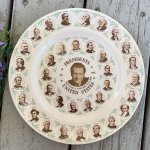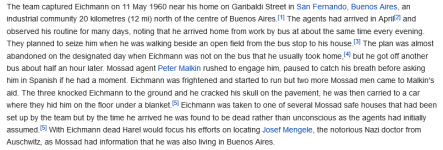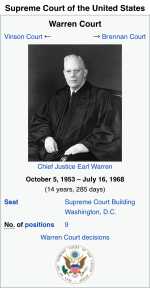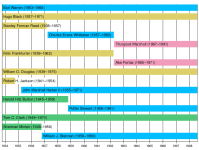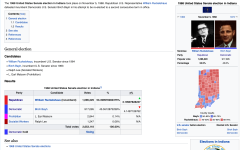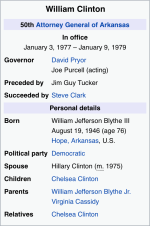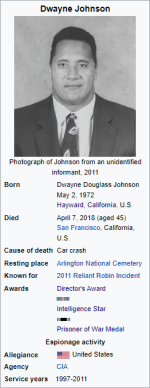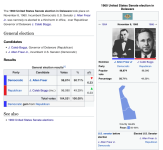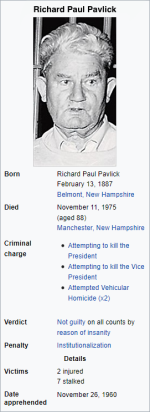-
Hi Guest!
The costs of running this forum are covered by Sea Lion Press. If you'd like to help support the company and the forum, visit patreon.com/sealionpress
You are using an out of date browser. It may not display this or other websites correctly.
You should upgrade or use an alternative browser.
You should upgrade or use an alternative browser.
Tsarytsya’s Little Log Cabin
- Thread starter Tsarytsya
- Start date
Threadmarks
View all 17 threadmarks
Reader mode
Reader mode
Recent threadmarks
Dwayne Johnson (You and I Remain) 1960 Delaware Senate Election (You and I Remain) Richard Paul Pavlick (You and I Remain) Andrew Jackson (Johnny Two) Second French Empire (Johnny Two) 1964 United States presidential election (Duelin’ Johnson) Quincy Two with a Side of Hickory California Uber Alles 1956 Election
Edgarton Yacht Club (You and I Remain)
1964 United States Senate Election in Massachusetts (You and I Remain)
Tsarytsya
Hehehhehehe
- Pronouns
- She/her
I didn’t originally plan to send this one next but I finished the write up so without much of a further-a-do.
For Massachusetts, as with America as a whole, 1964 was a year of surprises. A senate election that had begun as a Kennedy coronation -though one with an uncommonly strong independent in the mix- quickly morphed into an open and downright chaotic race.
John F. Kennedy had been a young, largely popular and nationally prominent two term senator. Coming to national notoriety for his Kefauverian primary campaigns, youth, good looks and the mutual loathing between his family and President Lyndon B. Johnson. Kennedy had quickly become an icon for Massachusetts, frequent standard bearer of the northern and Hawkish wings of the Democratic party and a leading figure for American Catholics, Irish in particular.
With his stardom still growing steadily Kennedy had decided to seek the nomination once more by means of a primary challenge -one that would fiercely critique Johnson’s domestic and international policy alongside his corruption. Ironically, emulating his arch-rival, he sought to contest his hone senate seat simultaneously -as a failsafe of sorts.
In the lead up both campaigns seemed in Kennedy’s favour, with primary after primary going his way while polls back in Massachusetts saw him consistently riding in the high 60s to mid 70s. However both campaigns weren’t without their cracks. In the primaries Kennedy struggled to break out of the catholic demographic, seemingly cursed to repeat the same mistakes that had cost him 60, while back home Kennedy’s absentee campaigning provided the perfect ammunition for his opponents.
The dynamic between Kennedy’s opponents, Hughes and Lodge, was quite notable for the time -with Hughes, an independent, being seen as the true anti-Kennedy in the race. After all the Senator was hawkish even for the era, especially in the nuclear field, so what better suited opponent than the firmly anti-Nuclear, anti-Cold War, Wallace (Henry) supporter could there have been?
In contrast a lot could be said of the consensus Lodge and Kennedy held on most issues, both moderate liberals, dynastic politicians from rich families and were perceived to be the puppets of their fathers. In light of this Hughes was treated seriously as a candidate, with Lodge even holding debates with him -though Kennedy remained aloof. With Kennedy in the 70s and Hughes stable in the early 20s, Lodge lagged far behind the both of them -picking up the scraps as many would put it.
None of this would last however, Kennedy would withdraw late from both races as his Addison’s disease grew too severe to ignore -remaining in the seat for the time being to avoid the appointment of Lodge by the then governor John Volpe, which might’ve given him the benefit of incumbency. Kennedy’s health would render him unable to fulfil even his most basic senatorial duties.
In Kennedy’s absence the Democratic party would, narrowly, chose his brother Robert as a last minute replacement. John’s lack of resignation and the nomination of his brother would sour the soon to be late Senator’s reputation, sowing the seeds for the modern day perception of the Kennedy’s as a dynasty of rich nepotists, desperate to cling onto power. Robert did, however, have his advantages. He alone could go all in on sympathy for Kennedy, his youth, charm and relation to the Senator also motivated him to market himself as a successor to Kennedy’s legacy, be it in name, personality or policy.
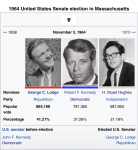
It wouldn’t be enough.
While Robert would manage to retain a significant amount of his brother’s support, in the end he split it fairly evenly with Lodge, with the laters original supporters allowed him to win out over Kennedy. In the end he simply couldn’t live up to his brother, being seen more often as a nepotistic knockoff than anything. It didn’t help that the soon to be late Senator’s overwhelming support had stemmed in good part from his high profile work in office, something which didn’t carry over to Robert.
The real breakout success of the election was Hughes, while he hadn’t won, nor come second like some had originally thought, he still demonstrated the popularity of his policies and preformed abnormally well for a third party issue candidate -perhaps, if he played his cards well, there might be a successful political career in sight for him yet.
For Massachusetts, as with America as a whole, 1964 was a year of surprises. A senate election that had begun as a Kennedy coronation -though one with an uncommonly strong independent in the mix- quickly morphed into an open and downright chaotic race.
John F. Kennedy had been a young, largely popular and nationally prominent two term senator. Coming to national notoriety for his Kefauverian primary campaigns, youth, good looks and the mutual loathing between his family and President Lyndon B. Johnson. Kennedy had quickly become an icon for Massachusetts, frequent standard bearer of the northern and Hawkish wings of the Democratic party and a leading figure for American Catholics, Irish in particular.
With his stardom still growing steadily Kennedy had decided to seek the nomination once more by means of a primary challenge -one that would fiercely critique Johnson’s domestic and international policy alongside his corruption. Ironically, emulating his arch-rival, he sought to contest his hone senate seat simultaneously -as a failsafe of sorts.
In the lead up both campaigns seemed in Kennedy’s favour, with primary after primary going his way while polls back in Massachusetts saw him consistently riding in the high 60s to mid 70s. However both campaigns weren’t without their cracks. In the primaries Kennedy struggled to break out of the catholic demographic, seemingly cursed to repeat the same mistakes that had cost him 60, while back home Kennedy’s absentee campaigning provided the perfect ammunition for his opponents.
The dynamic between Kennedy’s opponents, Hughes and Lodge, was quite notable for the time -with Hughes, an independent, being seen as the true anti-Kennedy in the race. After all the Senator was hawkish even for the era, especially in the nuclear field, so what better suited opponent than the firmly anti-Nuclear, anti-Cold War, Wallace (Henry) supporter could there have been?
In contrast a lot could be said of the consensus Lodge and Kennedy held on most issues, both moderate liberals, dynastic politicians from rich families and were perceived to be the puppets of their fathers. In light of this Hughes was treated seriously as a candidate, with Lodge even holding debates with him -though Kennedy remained aloof. With Kennedy in the 70s and Hughes stable in the early 20s, Lodge lagged far behind the both of them -picking up the scraps as many would put it.
None of this would last however, Kennedy would withdraw late from both races as his Addison’s disease grew too severe to ignore -remaining in the seat for the time being to avoid the appointment of Lodge by the then governor John Volpe, which might’ve given him the benefit of incumbency. Kennedy’s health would render him unable to fulfil even his most basic senatorial duties.
In Kennedy’s absence the Democratic party would, narrowly, chose his brother Robert as a last minute replacement. John’s lack of resignation and the nomination of his brother would sour the soon to be late Senator’s reputation, sowing the seeds for the modern day perception of the Kennedy’s as a dynasty of rich nepotists, desperate to cling onto power. Robert did, however, have his advantages. He alone could go all in on sympathy for Kennedy, his youth, charm and relation to the Senator also motivated him to market himself as a successor to Kennedy’s legacy, be it in name, personality or policy.

It wouldn’t be enough.
While Robert would manage to retain a significant amount of his brother’s support, in the end he split it fairly evenly with Lodge, with the laters original supporters allowed him to win out over Kennedy. In the end he simply couldn’t live up to his brother, being seen more often as a nepotistic knockoff than anything. It didn’t help that the soon to be late Senator’s overwhelming support had stemmed in good part from his high profile work in office, something which didn’t carry over to Robert.
The real breakout success of the election was Hughes, while he hadn’t won, nor come second like some had originally thought, he still demonstrated the popularity of his policies and preformed abnormally well for a third party issue candidate -perhaps, if he played his cards well, there might be a successful political career in sight for him yet.
Last edited:
United States Presidents Souvenir Plate (You and I Remain)
California Gubernatorial Election of 1962 (You and I Remain)
Tsarytsya
Hehehhehehe
- Pronouns
- She/her
It’s been a while longer than I intended it to be, a lots been going on in my personal life and all that tosh -I’m back, for now at least.
Nixon announced his candidacy for governor on September 27, 1961, roughly seven months after losing the 1960 presidential election by a landslide.
Both candidates sailed through their respective primaries, Brown with a total lack of challengers, Nixon with a few token ones in of former governor Goodie Knight, former Lieutenant Governor Harold J. Powers and businessmen John C. Shell.
The Nixon campaign’s “C Squared” focus, which argued that Brown was soft on Communism and Crime, seemed the strategy of a politician who’d grown out of touch with his home state. Despite this they still scored points by hitting Brown hard on more personalised issues that were important to him. Critiques of his opposition to the death penalty ran true with a state which supported it overwhelmingly while his failure to secure a $1.25 hour minimum wage was a black mark on his career.
Brown meanwhile had plenty to hammer Nixon for. It was common knowledge that Nixon was running against Brown in an attempt to keep himself in politics and the public eye, in light of this his bid was widely seen as a stepping stone for either a 1964 or 1968 presidential campaign and Brown exploited this to its fullest -arguing that Nixon, once the state’s favourite son, had lost touch with his roots in his greed for national glory. Nixon had sworn off the former in numerous campaign speeches but many still felt they’d have to see it -or rather not see it- to believe it.
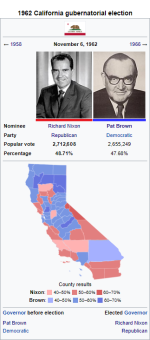
The prodigal son of California had come home, yet results were a mixed message for both candidates. Nixon’s victory had proved his continued political viability just as he had hopes, yet the narrow nature of the race immediately began to undermine him, providing many ample reasons to continue doubting him.
Additionally, despite his loss, the election far from destroyed Brown’s career, after all he’d proved his mettle even when all the odds seemed against him and, should Nixon betray California for high office as Brown and so many other predicted he would, his chances in 66 seemed as promising as ever.
Nixon announced his candidacy for governor on September 27, 1961, roughly seven months after losing the 1960 presidential election by a landslide.
Both candidates sailed through their respective primaries, Brown with a total lack of challengers, Nixon with a few token ones in of former governor Goodie Knight, former Lieutenant Governor Harold J. Powers and businessmen John C. Shell.
The Nixon campaign’s “C Squared” focus, which argued that Brown was soft on Communism and Crime, seemed the strategy of a politician who’d grown out of touch with his home state. Despite this they still scored points by hitting Brown hard on more personalised issues that were important to him. Critiques of his opposition to the death penalty ran true with a state which supported it overwhelmingly while his failure to secure a $1.25 hour minimum wage was a black mark on his career.
Brown meanwhile had plenty to hammer Nixon for. It was common knowledge that Nixon was running against Brown in an attempt to keep himself in politics and the public eye, in light of this his bid was widely seen as a stepping stone for either a 1964 or 1968 presidential campaign and Brown exploited this to its fullest -arguing that Nixon, once the state’s favourite son, had lost touch with his roots in his greed for national glory. Nixon had sworn off the former in numerous campaign speeches but many still felt they’d have to see it -or rather not see it- to believe it.

The prodigal son of California had come home, yet results were a mixed message for both candidates. Nixon’s victory had proved his continued political viability just as he had hopes, yet the narrow nature of the race immediately began to undermine him, providing many ample reasons to continue doubting him.
Additionally, despite his loss, the election far from destroyed Brown’s career, after all he’d proved his mettle even when all the odds seemed against him and, should Nixon betray California for high office as Brown and so many other predicted he would, his chances in 66 seemed as promising as ever.
Last edited:
Adolf Eichmann of 1906 to 1960 (You and I Remain)
Warren Court 1953-1968 (You and I Remain)
Tsarytsya
Hehehhehehe
- Pronouns
- She/her
Hey I'm back, I'm back in the U.S.S.R.
The Warren Court began when the deceased Fred M. Vinson was replaced by Earl Warren as Chief Justice in 1953 and lasted until Warren retired in 1968 to be succeeded as Chief Justice by William Brennan.
The Court is well remembered for dramatically expanding civil rights, civil liberties, judicial power, and federal power. It has been widely recognised that the court created a major "Constitutional Revolution" in the United States over its 14 year lifespan by bringing about one man, one vote through a series of rulings, and creating the Miranda warning. In addition, the court was widely applauded and criticised for bringing an end to de jure racial segregation in the United States, incorporating the Bill of Rights by including it in the 14th Amendment’s Due Process clause and ending officially sanctioned voluntary prayer in public schools. The period is often seen as a high point in judicial power which, though it has fluctuated ever since, still bears a continuing impact on American politics to this day.
The Court began on October 5, 1953, when President Dwight D. Eisenhower appointed Earl Warren, the incumbent governor of California, to replace Fred Vinson as Chief Justice. The court began with Warren and the final eight members of the Vinson Court: Hugo Black, Stanley Forman Reed, Felix Frankfurter, William O. Douglas, Robert H. Jackson, Harold Hitz Burton, Tom C. Clark, and Sherman Minton.
Jackson died in 1954 and Minton retired in 1956, and they were replaced by John Marshall Harlan II and William Brennan. Another vacancy took place when Reed retired in 1957 and was replaced by Charles Evans Whittaker, and then Burton retired in 1958, with Eisenhower appointing Potter Stewart in his place. When Frankfurter and Whittaker retired in 1962, then President Lyndon B. Johnson appointed two new justices: Abe Fortas and Thurgood Marshall, the first African American justice. The Court concluded on July 16, 1968 when Earl Warren retired, to be replaced by then President Nelson A. Rockefeller, with Associate Justice William Brennan being elevated to Chief Justice.
The Warren Court began when the deceased Fred M. Vinson was replaced by Earl Warren as Chief Justice in 1953 and lasted until Warren retired in 1968 to be succeeded as Chief Justice by William Brennan.
The Court is well remembered for dramatically expanding civil rights, civil liberties, judicial power, and federal power. It has been widely recognised that the court created a major "Constitutional Revolution" in the United States over its 14 year lifespan by bringing about one man, one vote through a series of rulings, and creating the Miranda warning. In addition, the court was widely applauded and criticised for bringing an end to de jure racial segregation in the United States, incorporating the Bill of Rights by including it in the 14th Amendment’s Due Process clause and ending officially sanctioned voluntary prayer in public schools. The period is often seen as a high point in judicial power which, though it has fluctuated ever since, still bears a continuing impact on American politics to this day.
The Court began on October 5, 1953, when President Dwight D. Eisenhower appointed Earl Warren, the incumbent governor of California, to replace Fred Vinson as Chief Justice. The court began with Warren and the final eight members of the Vinson Court: Hugo Black, Stanley Forman Reed, Felix Frankfurter, William O. Douglas, Robert H. Jackson, Harold Hitz Burton, Tom C. Clark, and Sherman Minton.
Jackson died in 1954 and Minton retired in 1956, and they were replaced by John Marshall Harlan II and William Brennan. Another vacancy took place when Reed retired in 1957 and was replaced by Charles Evans Whittaker, and then Burton retired in 1958, with Eisenhower appointing Potter Stewart in his place. When Frankfurter and Whittaker retired in 1962, then President Lyndon B. Johnson appointed two new justices: Abe Fortas and Thurgood Marshall, the first African American justice. The Court concluded on July 16, 1968 when Earl Warren retired, to be replaced by then President Nelson A. Rockefeller, with Associate Justice William Brennan being elevated to Chief Justice.
Last edited:
Indiana Senate election of 1968 (You and I Remain)
frittering
the tropic of cancer answered, drink the quicksand
- Location
- Vincent Hallinan Country
- Pronouns
- an indescribable void
This map doesn't seem particularly consistent with a Republican victory at the time, let alone one by five points. Certainly at that point Nixon would be cracking 60% in Orange and San Diego and doing much better in the southern Bay Area and greater Sacto. And Imperial County was still firmly Republican at this time; Nixon won it in his OTL race against Brown.
Tsarytsya
Hehehhehehe
- Pronouns
- She/her
Yeah frankly I’m not sure what my thinking was with the map, though the election itself should be much narrower -probably only one or two % apart- think I’ll redo that (done) and the Indiana one (done) soonish.This map doesn't seem particularly consistent with a Republican victory at the time, let alone one by five points. Certainly at that point Nixon would be cracking 60% in Orange and San Diego and doing much better in the southern Bay Area and greater Sacto. And Imperial County was still firmly Republican at this time; Nixon won it in his OTL race against Brown.
Last edited:
William Clinton (You and I Remain)
1970 South Carolina Gubernatorial Election (You and I Remain)
Tsarytsya
Hehehhehehe
- Pronouns
- She/her
The 1970 South Carolina gubernatorial election was held on November 3, 1970 to select the governor of the state of South Carolina. Albert Watson, an Independent Congressman from the 2nd congressional district, won a close general election against John C. West, the Democratic nominee.
The ultra conservative Watson, whom received the firm backing of Senator Thurmond -his mentor and fellow independent, would only narrowly triumph over the moderate West and his coalition of freshly enfranchised black voters and racially moderate whites. Turnout was even higher than the previous gubernatorial election, largely due to the the aforementioned enfranchisement of Black voters and the controversy around the openly segregationist Watson -who’s anti-integration campaign rhetoric is considered to have contributed to a white supremacist riot that targeted Black schoolchildren. Watson would defend the rioters, stating that "you can expect that to happen when you have frustrated people … People get restless and then things occur.”
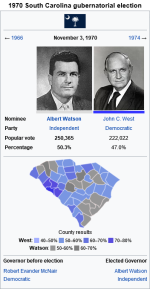
Things sure did occur…
The ultra conservative Watson, whom received the firm backing of Senator Thurmond -his mentor and fellow independent, would only narrowly triumph over the moderate West and his coalition of freshly enfranchised black voters and racially moderate whites. Turnout was even higher than the previous gubernatorial election, largely due to the the aforementioned enfranchisement of Black voters and the controversy around the openly segregationist Watson -who’s anti-integration campaign rhetoric is considered to have contributed to a white supremacist riot that targeted Black schoolchildren. Watson would defend the rioters, stating that "you can expect that to happen when you have frustrated people … People get restless and then things occur.”

Things sure did occur…
Dwayne Johnson (You and I Remain)
1960 Delaware Senate Election (You and I Remain)
Richard Paul Pavlick (You and I Remain)
Andrew Jackson (Johnny Two)
Walpurgisnacht
It was in the Year of Maximum Danger
- Location
- Banned from the forum
- Pronouns
- He/Him
This is genius--a great way to use the format.
Tsarytsya
Hehehhehehe
- Pronouns
- She/her
Aweh thanks a tonne! Love a good “prominent person is obscure in ATL” and getting in the habit of making full pages is certainly funThis is genius--a great way to use the format.
Walpurgisnacht
It was in the Year of Maximum Danger
- Location
- Banned from the forum
- Pronouns
- He/Him
Aweh thanks a tonne! Love a good “prominent person is obscure in ATL” and getting in the habit of making full pages is certainly fun
Someone did a wikibox a while back for (I think) a setting where Blair became a vampire in the 90s instead of going into politics, and as part of that the box uses the worst, most grainy, black-and-white photo of him and the highest position is Councillor. It's an underappreciated genre.
Jackson dying in a duel over something meaningless is also hands-down the easiest way for him to go out.
Tsarytsya
Hehehhehehe
- Pronouns
- She/her
Oh my god. I’d seen Kimkatya’s obscure grainy Blair but not Tonipire.Someone did a wikibox a while back for (I think) a setting where Blair became a vampire in the 90s instead of going into politics, and as part of that the box uses the worst, most grainy, black-and-white photo of him and the highest position is Councillor. It's an underappreciated genre.
Jackson dying in a duel over something meaningless is also hands-down the easiest way for him to go out.
This being a thematic end for Jackson rather than a trips down the stairs scenario does add to it yeah
Threadmarks
View all 17 threadmarks
Reader mode
Reader mode




